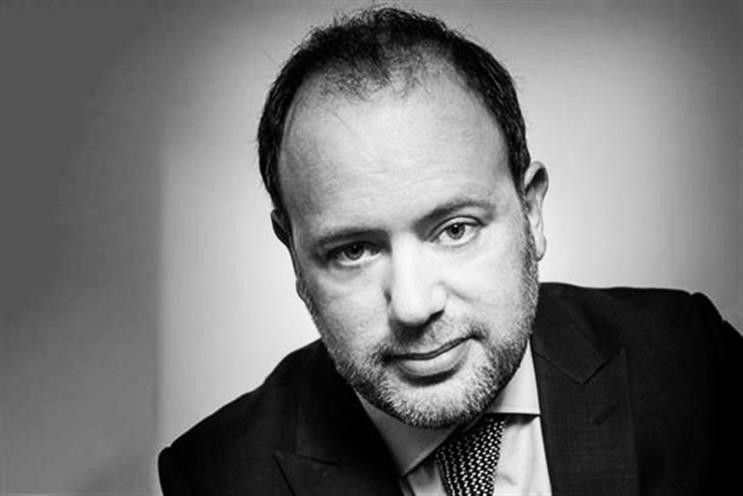The UK advertising and media sector is going to look very different in 18 months’ time – and probably sooner.
Talks between O2 and Virgin Media about a UK merger are just one example of how companies are thinking radically about their destiny as the coronavirus crisis rattles the global economy.
The coming recession will be a clarifying moment. Some businesses will seize the opportunity to accelerate plans to reshape their operations and may emerge stronger. Others, particularly those with outdated business models or too much debt, will struggle and may not survive.
S4 Capital executive chairman Sir Martin Sorrell’s prediction of a "Darwinian cull" is brutal but probably accurate. Some buyers are already on the prowl, looking for potentially distressed acquisitions.
The second quarter is set to be the nadir for the UK ad market, according to the latest Advertising Association/Warc forecast, which expects a 39% drop in the three months to June.
The outlook does not look much better for Q3, down 24%, and Q4, down 9%. The numbers point to a 16.7% or £4.2bn slump for the year – worse than the 2008-2009 financial crisis.
It is impossible to believe there will be a rapid recovery to full economic health.
For a start, easing the lockdown will be difficult. Continued social distancing will be important to prevent a second spike in infections.
"I think we have to be very cautious about the outlook in the second half of the year," Mark Read, WPP's chief executive, said, after seeing how some countries that eased restrictions have had to reintroduce them.
Persuading Britons to return to normal habits such as taking public transport and working in offices will be a challenge.
The government’s "Stay home, protect the NHS, save lives" messaging has made some citizens fearful of going out and some children anxious about returning to school, as Westminster insiders concede as they plan a new phase of comms and look to change behaviour.
"Our comms have been the best in Europe. We scared everyone shitless, but now we have to undo some of that," one unnamed Conservative MP told the Financial Times.
An extended period of pain
Rebuilding the economy is arguably the greatest challenge, because hundreds of thousands of jobs have already been lost in the UK. Some sectors such as travel could take years to recover.
The government’s furlough scheme, which has been extended until June, has largely been a success, according to Stephen Woodford, chief executive of the AA.
A survey of 130 mostly independent UK agencies in April by Moore Kingston Smith, a specialist accountancy firm for the media sector, found 85% were planning to take advantage of the furlough scheme.
But companies may not be able to afford to re-employ all of those who have been furloughed once the government stops picking up the cost.
About 28% of agencies are expecting to make redundancies to cope with the coronavirus crisis, according to Moore Kingston Smith.
A further 43% expect their headcount to shrink through natural wastage and 35% plan to maintain employee numbers this year. Only 1.6% expect to increase staff.
In addition, two-thirds of companies are planning temporary salary reductions for employees who are still working.
Some of the big agency groups were already under pressure before the crisis. The newly published annual IPA Agency Census showed the number of people working in UK agencies fell for the second year in a row in 2019, and a third year of decline looks certain.
Advertising and media companies face other stresses. Property is often the biggest expense after people and the next "quarter day", when the quarterly rent bill is due, is around 24 June.
Many businesses have been seeking extra bank lending to improve their liquidity and are bracing for an extended period of pain.
Esther Carder, partner at Moore Kingston Smith, predicts a "long, slow, shallow recovery" – like "an inverted rainbow", rather than a faster V-shaped or U-shaped return to growth.
"A lot of clients have told me they're worried about the autumn," she says.
Omnicom has told investors that it will take a severe approach on costs in Q3 as well as Q2, as it would rather add costs again only once revenue returns, not ahead of a pick-up in revenue.
One-third of those surveyed by Moore Kingston Smith admitted the coronavirus crisis is a chance for "rationalisation" inside their company and a tenth believe it will enable the "takeover of competitors". But more than half said: "No, I do not see the current environment as a business opportunity."
Big and small companies alike are feeling the pressure.
Dentsu has postponed its quarterly results, due in mid-May, because of what it describes as "some delays to accounting procedures" and it is "in discussion with multiple banks to establish incremental credit lines in case it is required".
Meanwhile, a quarter of the agencies surveyed by Moore Kingston Smith had only enough cash in the bank to last three months or less.
Woodford says the government’s emergency coronavirus business interruption loan scheme has been a disappointment, as relatively few companies have been able to access it compared with the furlough scheme.
However, the reality is that the public sector can offer only limited help beyond the immediate future.
Commercial media companies need to plot their own way to safety, either alone or with allies, if they are to avoid the Darwinian cull.
Gideon Spanier is UK editor-in-chief of 北京赛车pk10



